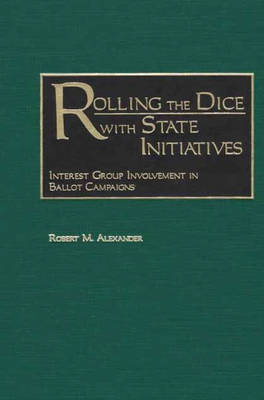Alexander examines interest group involvement in direct democracy. The tools of direct democracy--initiative, referendum, and recall--were initially created to delimit the power of economic interest groups and curb the power of political machines. Today, however, many believe that direct democracy has become a tool dominated by economic interests and that ballot contests have emboldened moneyed interests, rather than stemming their power. This unanticipated consequence of direct democracy has been coined the Populist Paradox.
Through two case studies, Alexander examines how debilitating the Populist Paradox truly is. The issue of gambling was selected due to the large number of affected interests and the degree of conflict enveloping the issue. Current research suggests that economic interest groups are best able to mobilize monetary resoures, while citizen groups are best able to mobilize personnel resources. The question then turns to whether the differential ability to mobilize resources translates to success or failure for groups with different bases of support. Populist and Progressive reformers obviously did not foresee the advent of campaign consultants, focus groups, direct mail, and paid petitioners. These changes in political campaigning have made the ability to mobilize personnel resources much less important. Alexander provides a valuable extension to current knowledge of group involvement in ballot campaigns that will be of particular interest to scholars, students, and other researchers involved with state and local public policy.
- ISBN10 0275974960
- ISBN13 9780275974961
- Publish Date 30 December 2001
- Publish Status Active
- Publish Country US
- Publisher ABC-CLIO
- Imprint Praeger Publishers Inc
- Format Hardcover
- Pages 144
- Language English
